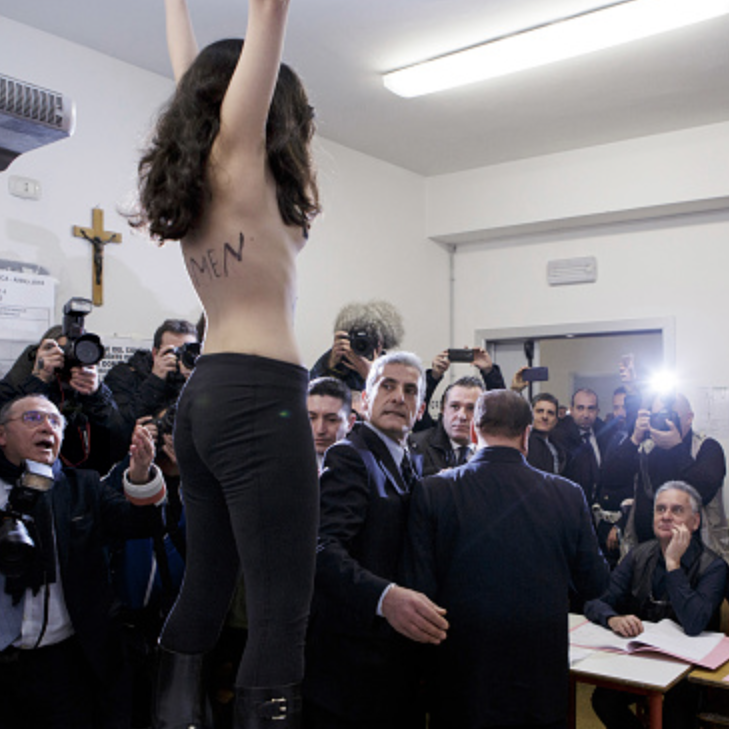Italian election: Stalemate lingers
🔗 [SYSTEM UPDATE] Link found. Timestamp incremented on 2025-11-26 13:55:13.Ten days after the election Italy still has no government, despite the posturing of party leaders. DARIA IMPIOMBATO looks at aftermath of an election that divided north and south.

By DARIA IMPIOMBATO
Following a rowdy electoral campaign and months of uncertainty, Italy remains in a stalemate 10 days after its general election on March 4.
Italy’s politicians now have the option of forming a new coalition in order to form government, or sending Italians back to the polls again.
Voters were split north against south – a clear symptom of the deep divisions that have characterised Italian society.
Yesterday the young leader of the populist 5 Star Movement Luigi Di Maio called a press conference insisting he would become Italy's next premier, but did not say how that would happen since the party had ruled out alliances with other parties.
http://gty.im/931478126
Luigi Di Maio, leader of the populist Five Star Movement, yesterday said his party would lead and he would become premier, however the situation remains in a stalemate.
M5S is a populist party originally coordinated through a social network, whose members are activists with no political experience. “We are tired of corrupt parties,” a 5 Star Movement (M5S) supporter wrote on Twitter. “Who voted for the M5s didn’t do it for the guaranteed minimum income, but because they are tired of corrupted parties.”
The party won 32.7 per cent of votes, the best result for an independent party. Support was especially strong in southern regions, where the economic crisis and constant immigration arrivals brought exasperation and disillusionment to locals.
However, the inexperience and lack of formal education of its members generated fierce criticism for Di Maio, who kept receiving insults on social media.
“The lunatics of the M5S are about to govern,” a voter tweeted. “I am scared. Are you relaxed?”
The centre-right coalition came out on top with 37 per cent of votes for the Chamber of Deputies, one of the two houses of Italy’s bicameral parliament, but without enough seats to form government in its own right.
They were led by the rightist Lega (League), an anti-immigration and anti-European Union party.
Lega PM candidate Matteo Salvini based his campaign on the slogan ‘“prima gli italiani”. which translates to “Italians first”.
Mr Salvini was previously an active participant in the secessionist movements of Italy’s northern regions, and managed to gain widespread support throughout the north.
“Italy is no longer going to be for the migrants,” one Lega supporter posted on Twitter.

An opponent accused Lega of discrimination and racism, referring to the party’s past attacks against southern Italians.
“Lega is a secessionist party, clearly discriminatory and racist against Italian southerners. I don’t understand how Salvini gets votes in the South and the islands. Southerner friends, did you lose your mind?” the Tweet from Orbit Tertius said.
Forza Italia (Go Italy), a liberal centre-right party, joined the right’s coalition, with a strong comeback from its internationally infamous leader, Silvio Berlusconi.
Mr Berlusconi was previously convicted for fraud in 2013, and could not run for office. However, his presence as party leader influenced old followers and helped bolster the centre-right’s strong vote.
http://gty.im/927060192
Mr Berlusconi’s vote was interrupted on election day when an activist from FEMEN, an international women’s movement, demonstrated against the controversial politician at the polls.
The woman stood shirtless on a table, shouting.
“Time’s up Berlusconi,” the woman yelled. “Berlusconi, you are expired,” she said.
The centre-left coalition had not recovered by election day, following controversy surrounding the party’s leader and ex-prime minister, Matteo Renzi.
Mr Renzi resigned last year after losing a constitutional referendum, and a Twitter user criticised him for “destroying the left in Italy”.
“At age 42, knowing you’ll be remembered as the one who destroyed the Left in Italy must be tough. Congrats", Andrea Favara said in his tweet.
http://gty.im/929106222
A supporter flies the flag of the far-right party Lega in Italy's north.
His coalition amassed just 22.8 per cent of votes.
The head of the left’s coalition, the Partito Democratico (Democratic Party), had previously won the elections in 2013. In response to this year’s results, an Italian blogger commented: “With these numbers, the PD would have lost even X Factor.”
Italians took to social media to voice their frustrations with the previous governments. Many wanted to throw out old politicians because they were sick of the status quo.
People abroad took part to the conversation.
“Social Democrats are being taken apart all across Europe,” a Twitter user posted.
“This is what you get for ignoring the people.”

Another user compared Italy to the UK. “We have some experience of having mistakenly voted for a right wing pile of crap in Brexit,” he tweeted.





